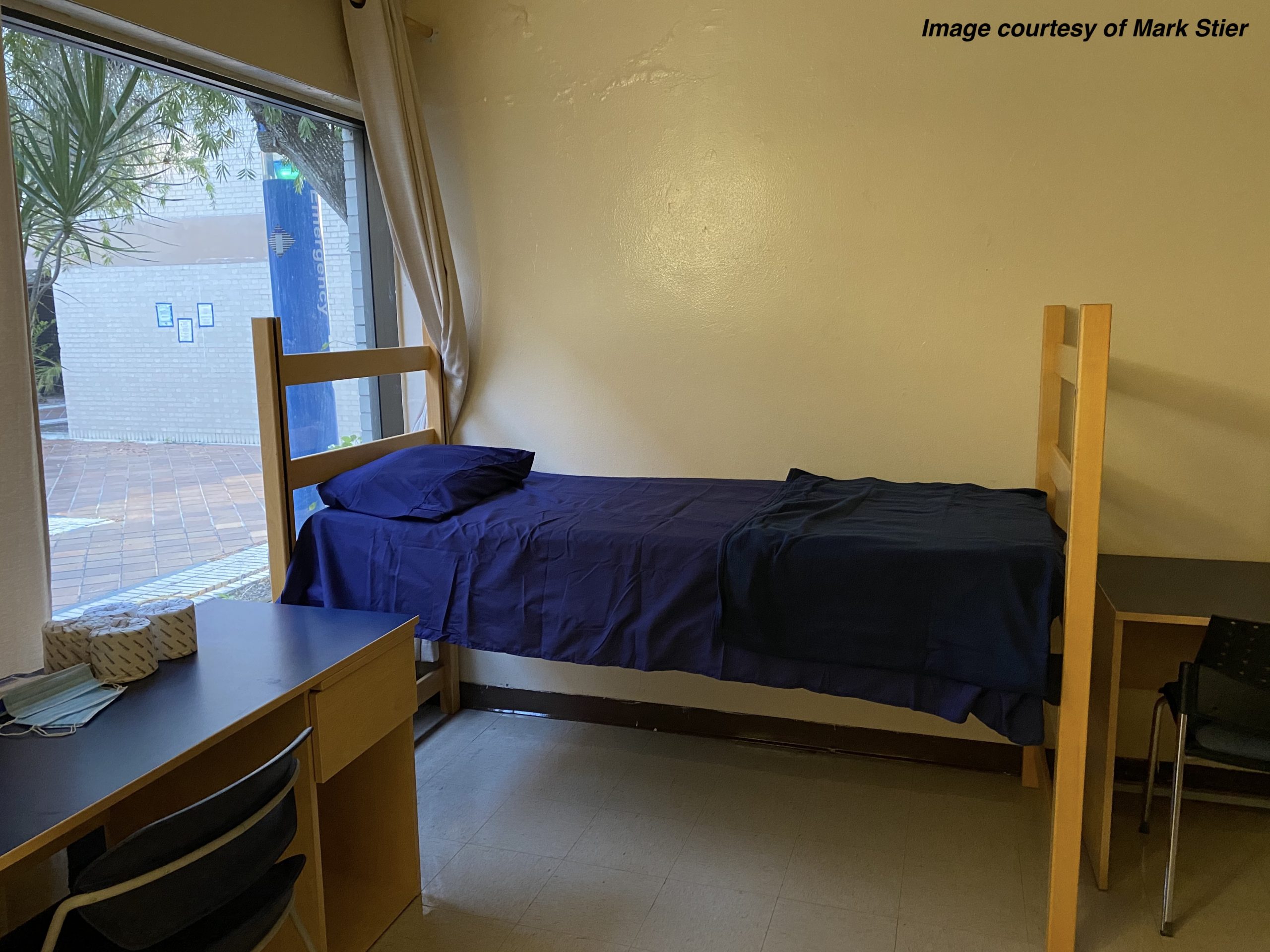Six weeks into the first full semester during the COVID-19 pandemic, the inevitable happened: the first positive case of COVID-19 was reported for the academic year on Tuesday, September 29. College officials remain tight-lipped on details about this case and would not disclose whether the infected community member was a student or employee. However, President Donal O’Shea divulged that this positive case was discovered because the individual self-reported symptoms through the symptom tracking app.
“They had symptoms, reported them, were tested and the test came back positive,” O’Shea said in an email interview.
After the results of the test came back positive, Dr. Anne Fisher, the director of the Counseling and Wellness Center (CWC), immediately initiated internal contact tracing. The Sarasota County Health Department will also conduct its own contact tracing at a later point in time.
“The person who may test positive is contacted right away, interviewed, and their movements, activities, and anyone they came in contact with are hopefully located,” Fisher said. “We can reach out to the food service and follow those card swipes if need be. We also reach out to the faculty to make sure who was in that person’s class and what the class was like.”
Also, any individuals who had high-risk contact with the person who tested positive are quarantined and tested for COVID-19. They will be in isolation for a minimum of two weeks and will not be released from isolation until they are evaluated by University of South Florida Student Health Services.
“[A] high risk contact is anyone who was within six feet of the person for more than 15 minutes and during the period of less than 48 hours from the infected person’s symptoms,” Fisher explained. “Inside or outside, masks or not, all count. All people in this case who had a high risk contact have been notified.”
In an email sent to students and employees in the evening of October 1, O’Shea seemed optimistic about the risks of a potential outbreak.
“That person started showing symptoms on Friday, and the results of the random tests, together with contact tracing, suggest (but do not prove) that the case was contracted off campus,” O’Shea wrote. “The lack of other individuals reporting symptoms also support this conclusion and lead us to hope that the virus has not spread.”
What if a student tests positive?
“As we have been doing all term, we immediately isolate any student who is reporting symptoms of COVID-19,” Fisher said. “We do not wait for the test results to isolate the person, rather we isolate first, test, and then follow it as Student Health professionals direct us.”
Students living on-campus are directed to move to designated isolation rooms decked out with a mini-fridge, microwave and linens.
“Students are able to bring essentials with them so they are comfortable and are able to continue their academics virtually,” Mark Stier, the senior associate dean of student affairs, said in an email interview.
According to Stier, student affairs staff deliver meals prepared by Metz Culinary Management, the school’s contracted food service provider. Isolated students are also able to request additional nourishment from the food pantry.
Stier added that students who want to return home are allowed to, but they will not be allowed to return to campus without medical clearance from the CWC.
What if an employee tests positive?
If any staff and faculty test positive, they are not allowed to return to campus until 10 days after test results are received and are symptom-free for at least 24 hours. They are required to quarantine off-campus — Stier clarified that the on-campus quarantine resources are currently only available for residential students.
Some college employees have jobs that are more conducive to remote work, such as administrators and professors, while some jobs, such as library technicians and maintenance staff, are physically impossible to do remotely. President Donal O’Shea said that employees who cannot work remotely, test positive for COVID-19 and/or have come in close contact with someone who tests positive will still receive compensation throughout their isolation period. On the other hand, employees who can work remotely but also test positive for COVID-19 will be expected to continue working at full capacity unless their symptoms intercede with work.
“We will handle [it] just as we do in regular times when a faculty member gets sick,” O’Shea said. “When they can’t teach, their colleagues cover their classes for them. If it is an extended sickness and we can find a qualified adjunct instructor, we will sometimes hire one.”
Will campus shut down again? (Probably not.)
“At this point, the probability is very low that we would close the campus,” Fisher said. If campus closed, all in-person activities would be suspended, but the residence halls would remain open for students who wanted to stay on campus.
“We would not close the dorms — we’re not going to do that again,” Fisher explained. “We can never do that again because it’s all around us now. We’ll try to take care of people and keep them as isolated as we can until we get everybody better.”


Pingback: DeSantis launches Florida into Phase 3 of reopening – The Catalyst